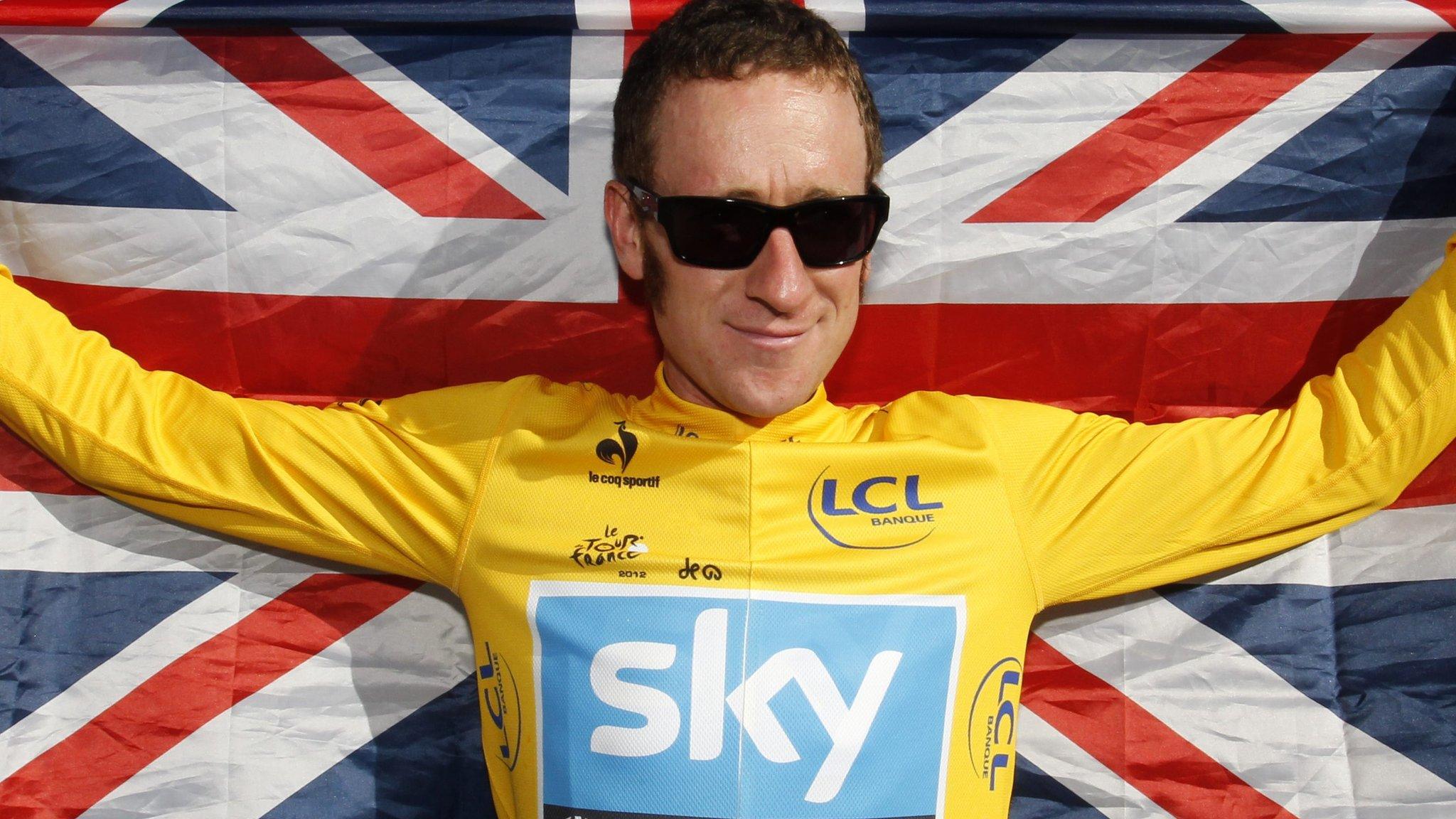Sir Bradley Wiggins: Tour de France winner & five-time Olympic champion retires
- Published
- comments
Five-time Olympic champion Sir Bradley Wiggins has announced his retirement from cycling aged 36.
Britain's first Tour de France winner, in 2012, said he had fulfilled a "childhood aspiration" of making a career out of the sport.
"I've met my idols and ridden alongside the best for 20 years," he said., external
"2016 is the end of the road for this chapter, onwards and upwards. Kids from Kilburn don't win Olympic golds and the Tour de France! They do now."
Wiggins became Britain's most decorated Olympian in August when he won the team pursuit gold on the track in Rio, his fifth gold and eighth Olympic medal.
He secured eight world titles on the road and track and set the world record for the furthest distance ridden in one hour, at the London Olympic velodrome, at 54.526km.
However, his use of therapeutic use exemptions (TUEs), has come under scrutiny after his confidential medical information was leaked by hackers 'Fancy Bears' in September 2016.
"What will stick with me forever is the support and love from the public though thick and thin, all as a result of riding a pushbike for a living," Wiggins added.
"2012 blew my mind and was a gas. Cycling has given me everything and I couldn't have done it without the support of my wonderful wife Cath and our amazing kids."
Wiggo's big wins
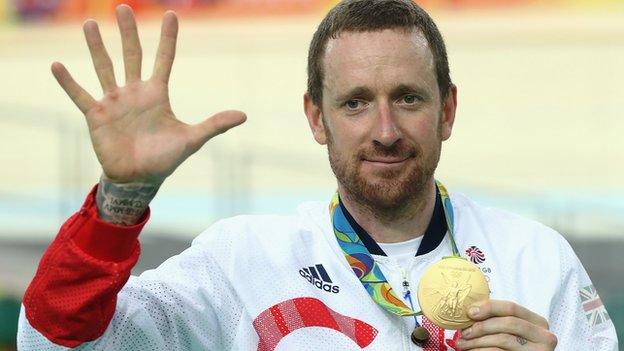
Sir Bradley Wiggins won five Olympic gold medals during his career
Britain's most decorated Olympian with five gold medals in his haul of eight
2000 - wins first Olympic medal, bronze in Sydney
2004 - first Briton to win three Olympic medals at same games since 1964
2008 - wins two gold medal at Beijing Olympics
2012 - first British winner of Tour de France
2012 - wins time trial gold at London 2012
2012 - BBC Sports Personality of the Year winner
2012 - Velo d'Or winner (best cyclist of the year award)
2013 - knighted for services to cycling
2014 - world road time trial winner
2015 - sets world hour record on the track at 54.526km
2016 - wins eighth Olympic medal in Rio
Won eight world titles on the track and road
A golden year
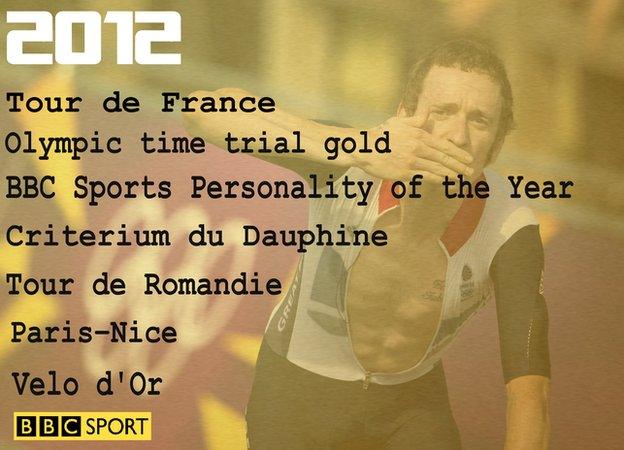
Wiggins' 2012 haul
The medals and the jerseys
Wiggins had already won team pursuit silver at the 1998 Commonwealth Games as an 18-year-old before he began to seep into the public consciousness with a bronze in the same event at the Sydney Olympics in 2000.
Sixteen years later, he teamed up with Ed Clancy, Owain Doull and Steven Burke to neatly bookend his career with team pursuit gold in Rio.
In between, he became the first British athlete since Mary Rand in 1964 to win three medals at one Olympics - claiming three on the track at Athens in 2004.
Two more golds followed at the 2008 Beijing Games before he opted to focus more of his attentions to the road, finishing fourth in the 2009 Tour de France - later upped to third following Lance Armstrong's disqualification for doping.
Following his sensational 2012, Wiggins was knighted in 2013 and went on to win world time trial gold in 2014 before setting a new hour world record at the London Olympic velodrome in 2015.
There were also seven track world titles, including two with long-time friend Mark Cavendish in 2008 and 2016 in the madison.
Controversy
Bradley Wiggins: 'This was about putting myself back on a level playing field'
Wiggins and Team Sky, the professional team he won the Tour with, were put under scrutiny in September 2016 for his use of therapeutic use exemptions (TUEs), after his confidential medical information was leaked by hackers 'Fancy Bears'.
The cyclist, an asthma sufferer, said he sought TUEs to "put himself back on a level playing field".
The TUEs were approved by British authorities and cycling's world governing body, the UCI.
There is no suggestion that either he, British Cycling or Team Sky, his former team, have broken any rules.
Team Sky boss Sir Dave Brailsford has also revealed the contents of a medical package delivered to the team on the final day of the 2011 Criterium du Dauphine.
The package, which was for Wiggins - who went on to win the seven-day race - contained the decongestant Fluimucil, which is legal in sport and "administered on a regular basis" Brailsford told MPs.
Wiggins' final race was in the town of his birth at the Ghent Six Day event in November, where he claimed victory alongside Cavendish.
What they said
British Cycling president Bob Howden: "Few sportspeople have had the impact on life in this country as Sir Bradley Wiggins.
"He retires as one of British sport's great champions, not just for the medals and the sheer diversity of races he won but also for the way in which he used his achievements to inspire so many people to become active by getting on their bikes.
"British Cycling has much to thank him for and we wish him success with his future plans."

Olympic gold medallist Joanna Rowsell Shand said Wiggins had inspired her to start cycling
Analysis
BBC sports editor Dan Roan
More than any other athlete, Sir Bradley Wiggins symbolised both Britain's emergence as a cycling nation, and a true sporting superpower.
A phenomenally talented competitor, he ruled his sport, both on the track and on the road. His personality also ensured his celebrity extended well beyond sport.
However, Wiggins was controversial as well as popular, and this is a sad end, because he quits amid sustained and intense scrutiny over his use of powerful corticosteroids before major races.
Just last week, two men who helped him achieve so much - Team Sky boss Sir Dave Brailsford and coach Shane Sutton - were asked awkward questions by MPs about a medical package Wiggins received in 2011.
Some will wonder whether the controversy influenced the timing of his retirement. And whether the legacy of Britain's most decorated Olympian has escaped untainted.
- Published20 November 2016
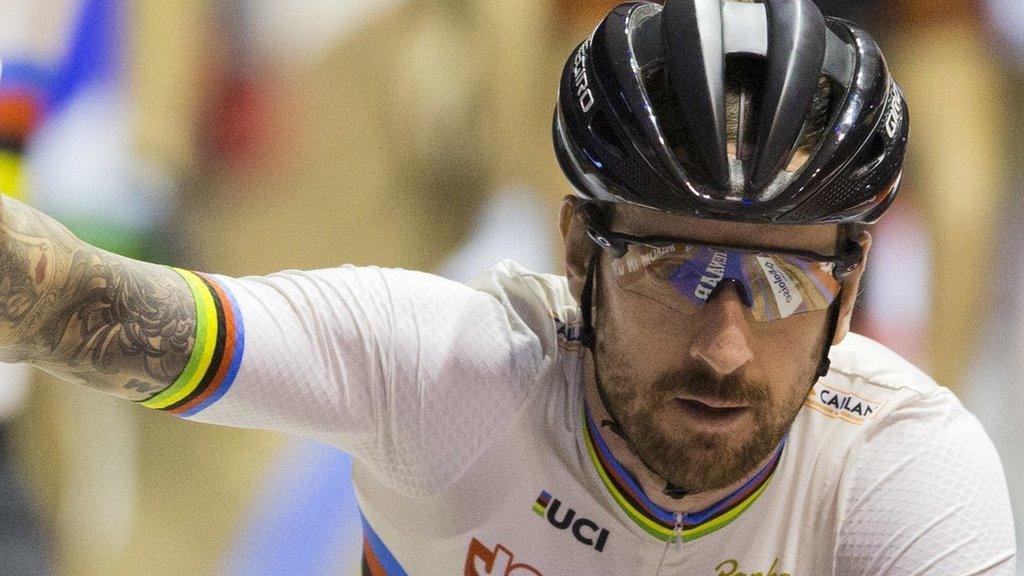
- Attribution
- Published25 September 2016
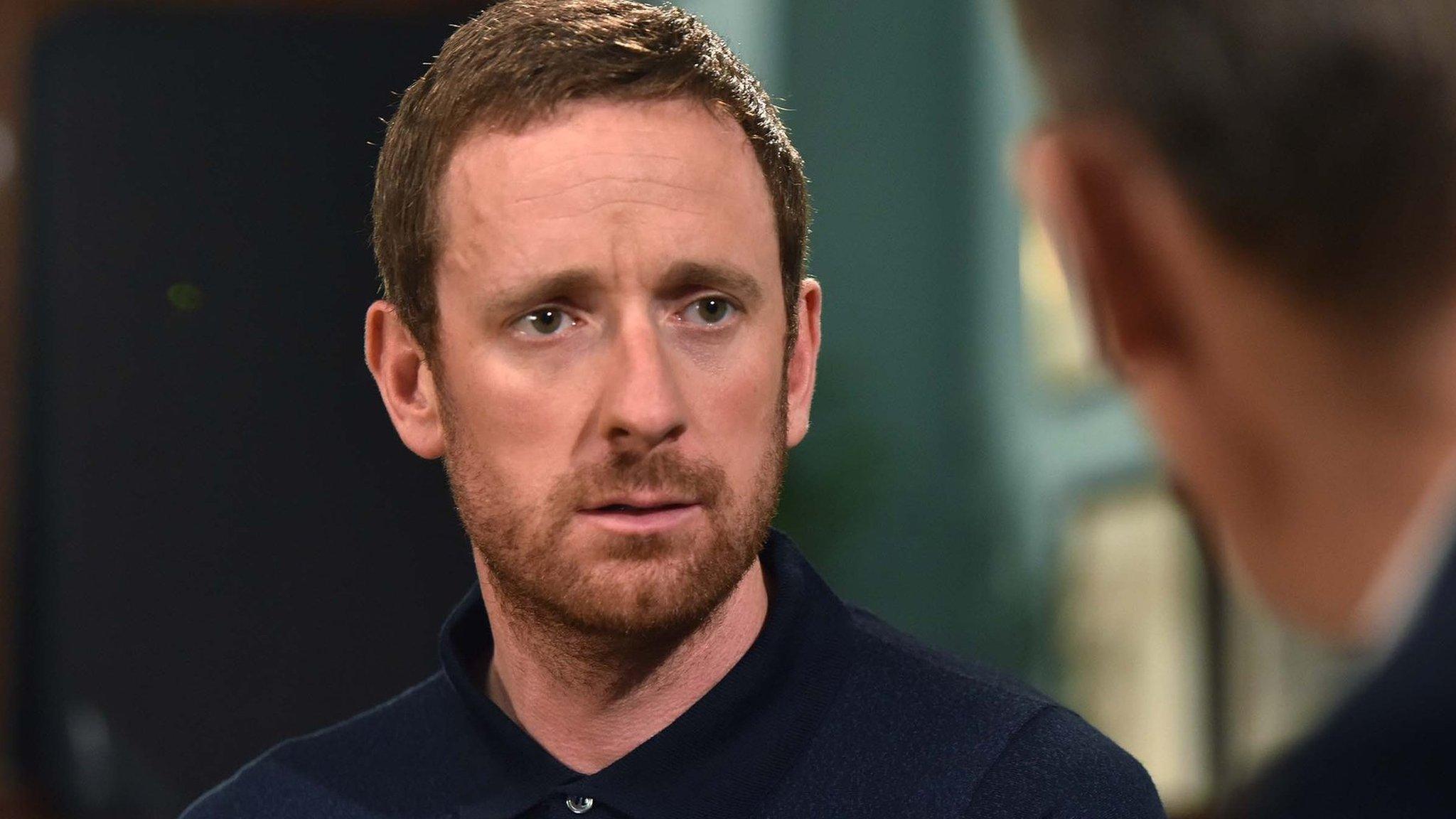
- Published13 August 2016
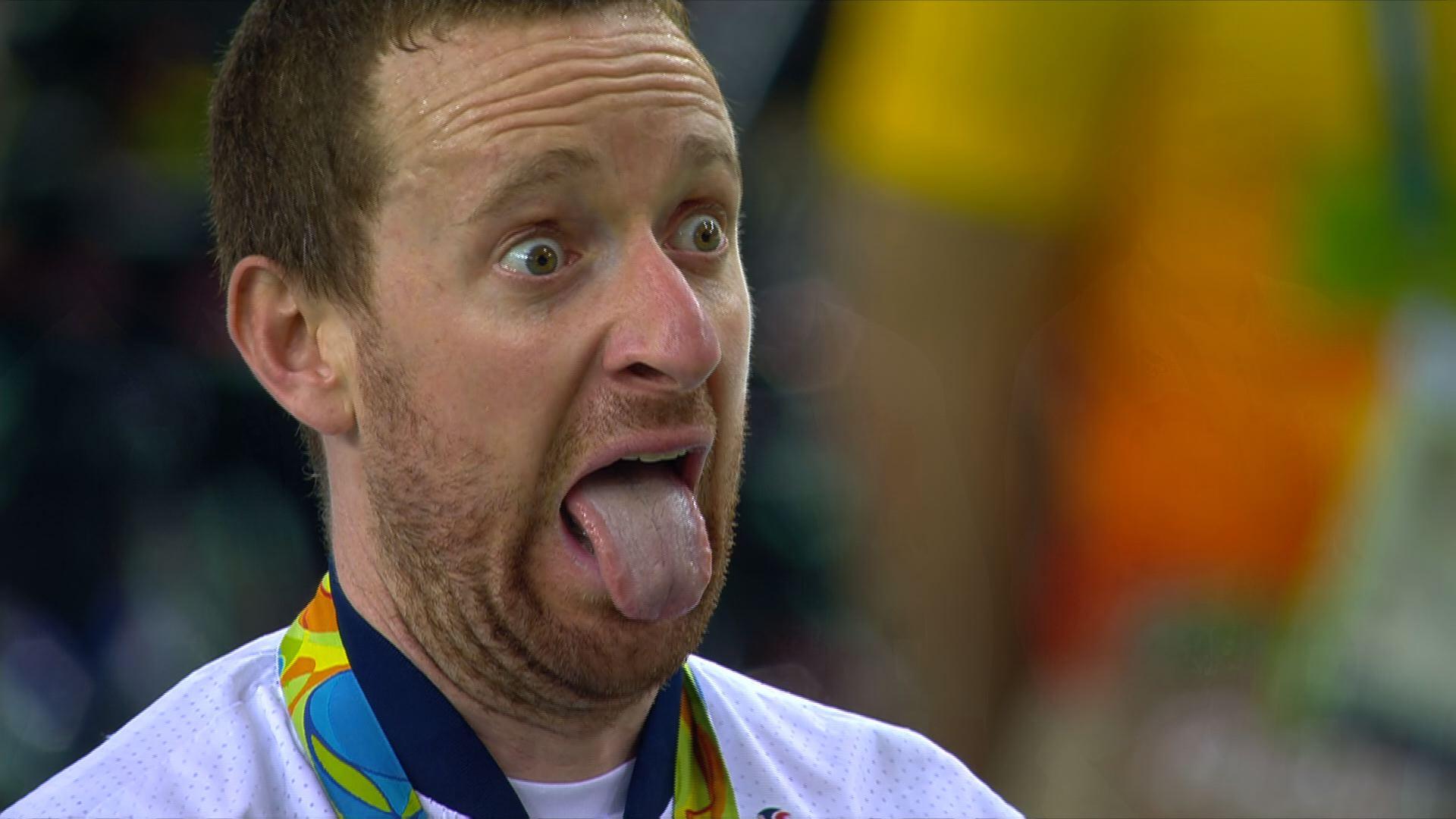
- Published13 August 2016
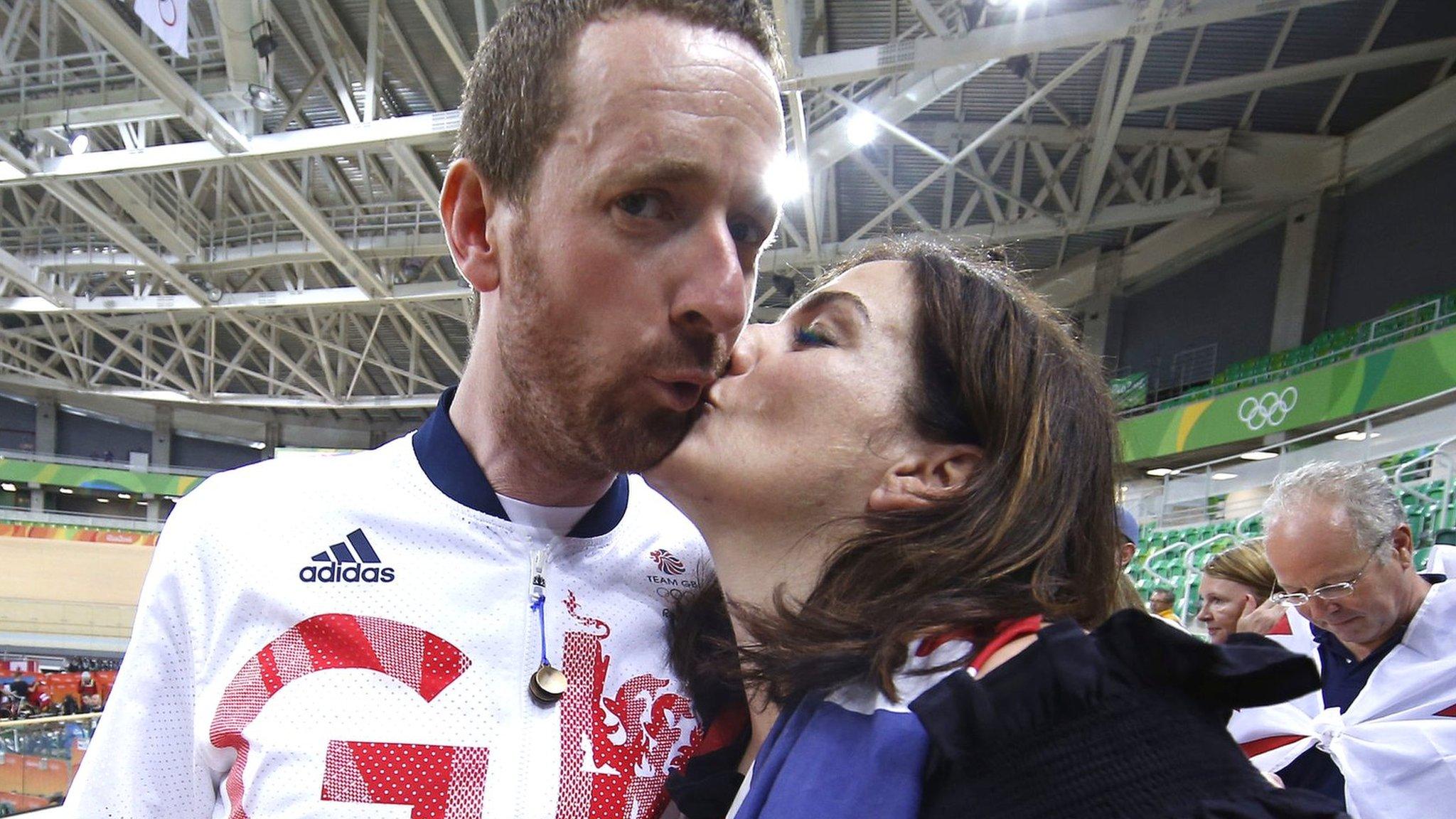
- Attribution
- Published11 August 2016
